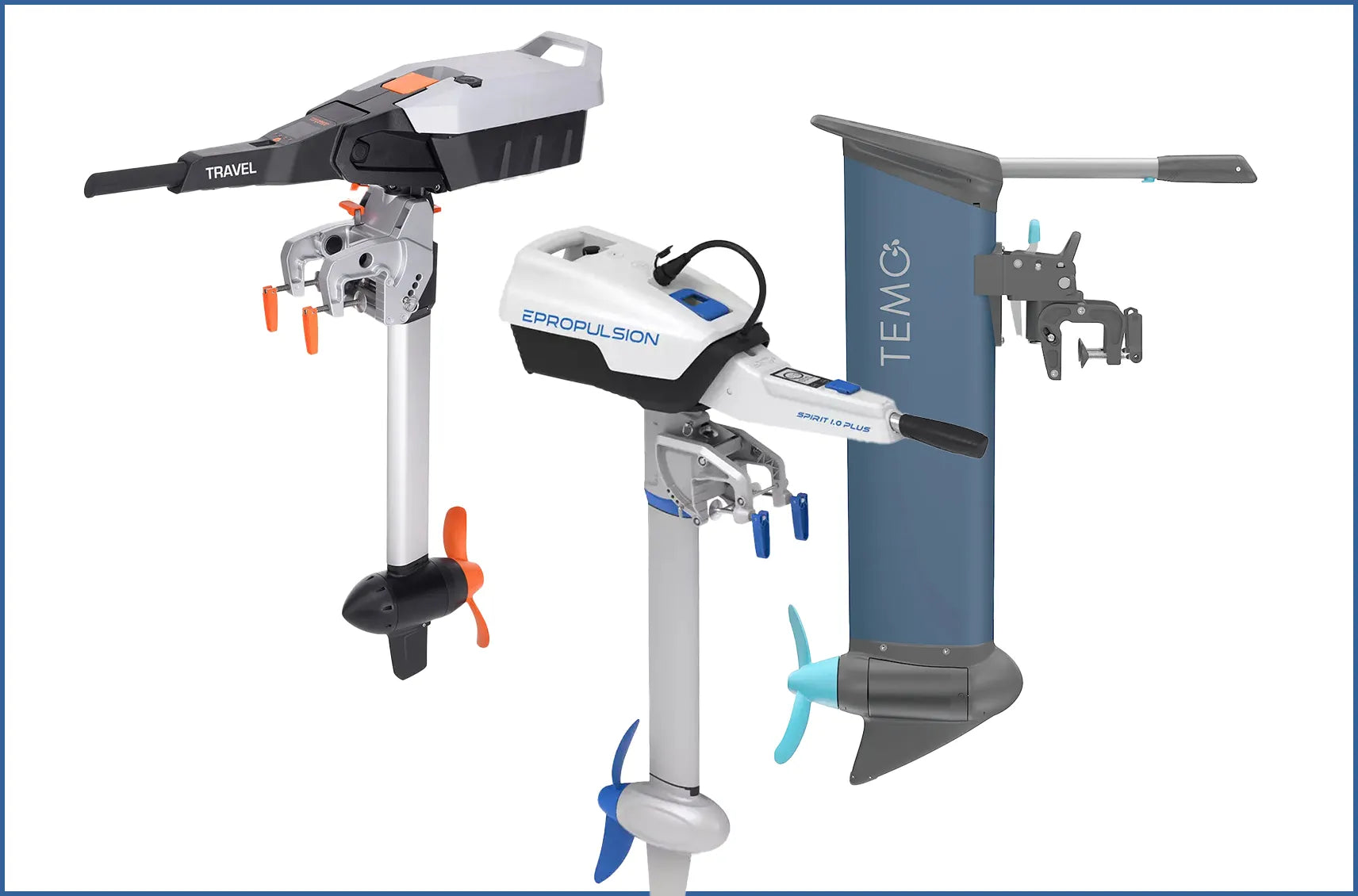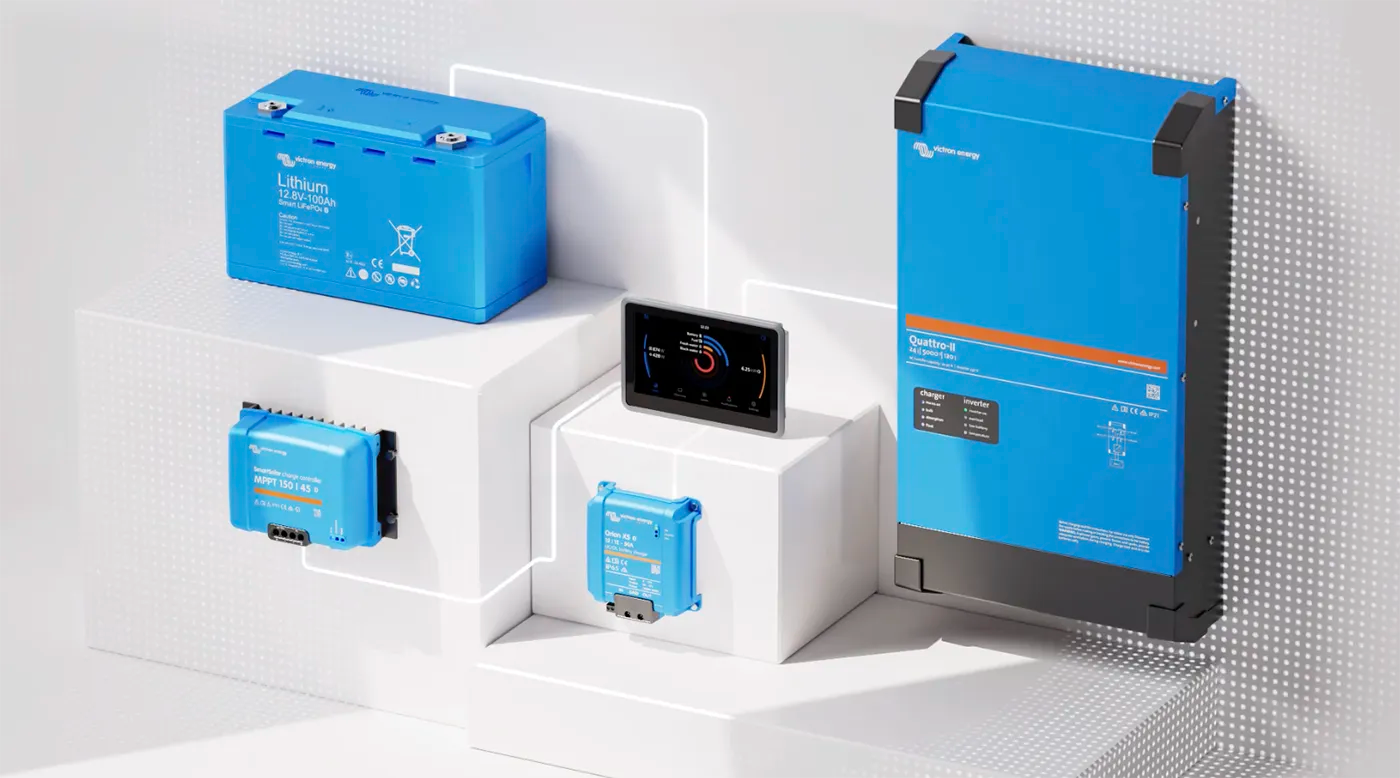6 Essential Tips for Charging Your Marine Battery
Marine batteries are the lifeblood of your vessel’s electrical system, powering everything from navigation equipment to lights and appliances. Proper charging is crucial for maintaining battery health, ensuring reliable performance, and extending battery lifespan. Here’s a comprehensive guide to charging your marine batteries effectively.

Monitor Depth of Discharge
Monitoring the Depth of Discharge (DoD) is crucial for maintaining the health and longevity of lithium-ion batteries. Properly managing DoD helps prevent over-discharging, which can significantly reduce the battery’s lifespan and performance. By keeping track of how much energy has been used, you can ensure that the battery is not drawn down to levels that could damage it.
Regular monitoring also allows for optimal charging practices, contributing to overall system efficiency and reliability. Additionally, understanding DoD helps in managing energy consumption more effectively, ensuring that there is always enough power available for critical applications.
The Victron Smart Shunt is an excellent tool for accurately monitoring DoD in a lithium-ion battery system. This device provides precise measurements of current flow, allowing it to calculate both the state of charge (SoC) and the DoD with high accuracy. Integrated with Victron’s monitoring apps, it offers real-time data and insights into battery performance, making it easier to manage energy usage effectively.
Check Battery Connections
Ensure that all battery terminals and connections are clean and tight. Loose or corroded connections can result in energy loss during charging and affect the overall performance of your battery. Regularly inspect and clean the terminals to ensure a secure and efficient charging process.
Charge in Stages
Employing a multi-stage charging process is key to efficient battery maintenance. The three main stages of charging are:
- Bulk Charging: During this stage, the charger delivers maximum current to the battery until it reaches around 80% of its capacity. This stage is crucial for quickly replenishing the majority of the battery’s charge.
- Absorption Charging: Once the battery reaches around 80% capacity, the charger switches to a lower current to fully charge the battery. This phase helps to ensure that the battery is charged to its full capacity without overcharging.
- Float Charging: In the final stage, the charger maintains a lower voltage to keep the battery at a full charge without overcharging. This is especially important for maintaining charge when the battery is not in use.
Charging in these stages helps maximize battery life and performance, particularly for AGM and Lithium-Ion batteries, which are sensitive to charging rates and conditions.
Store Battery in a Cool, Dry Place
Storing a battery at the right temperature is crucial for maintaining its health and performance. It’s best to keep them in a cool, dry environment with temperatures between 68°F and 77°F. Proper temperature control helps prevent issues such as sulfation in lead-acid batteries and capacity loss in lithium-ion batteries.
Excessive heat can accelerate chemical reactions within the battery, leading to degradation and a shorter lifespan. Conversely, extreme cold can reduce the battery’s efficiency and may cause internal damage. By maintaining an optimal temperature, you ensure that the battery remains in good condition and performs reliably over time.
Most manufacturers recommend storing Lithium batteries at a 40-60% SoC to preserve battery health and longevity. This charge level reduces chemical stress and minimizes degradation over time, ensuring optimal performance when the battery is put back into use. Manufacturers like Victron Energy, Battle Born, and Renogy suggest maintaining this SoC alongside keeping batteries in a cool, dry environment to further extend their lifespan.
One advantage many lithium-ion batteries have is a built Battery Management System (BMS), which can automatically discharge the battery to the recommended SoC for optimal storage. Products like Victron's Smart LiFePO4 batteries and Dakota Lithium's LiFePO4 batteries come equipped with integrated BMS that ensures safe, automated discharging to the ideal SoC.
Avoid Overcharging & Deep Discharges
Overcharging can lead to excessive heat and reduced battery lifespan, while deep discharges can also shorten the battery’s life. It’s important to avoid both practices to maintain battery health. Regularly check your battery’s state of charge and avoid running it down too low or leaving it connected to the charger for extended periods after it’s fully charged. This is only the case for lead-acid batteries.
Deep discharges aren’t a concern for lithium-ion batteries because they are designed to handle a much deeper depth of discharge compared to traditional lead-acid batteries, allowing them to safely be discharged down to 10% without significant degradation. When discharged to this level, lithium-ion batteries still maintain their efficiency and longevity, as the built-in BMS protects them from damage by regulating charge and discharge cycles.
Use the Right Charger
The first step in charging your marine batteries is to ensure you’re using the correct charger for the battery type you have. Marine batteries come in various types, including AGM (Absorbent Glass Mat), Gel, and Lithium-Ion. Each type has specific charging requirements.
- AGM and Gel Batteries: These are sealed lead-acid batteries that require a charger with a regulated charging profile to avoid overcharging and to maintain optimal performance.
- Lithium-Ion Batteries: These batteries need a charger compatible with their specific charging profiles, typically featuring advanced management systems to ensure safe and efficient charging.
Smart chargers, like Victron’s Blue Smart IP22 Charger, are highly recommended as they automatically adjust the charging parameters to suit the battery type and condition. This adaptability helps prevent common issues such as overcharging and undercharging, ensuring your batteries receive the right amount of power at every stage of the charging process.
We at Blue Marine supply are large stock of high-quality lithium-ion batteries and accessories that can enhance you power system.



